Connecting Rust and IPFS
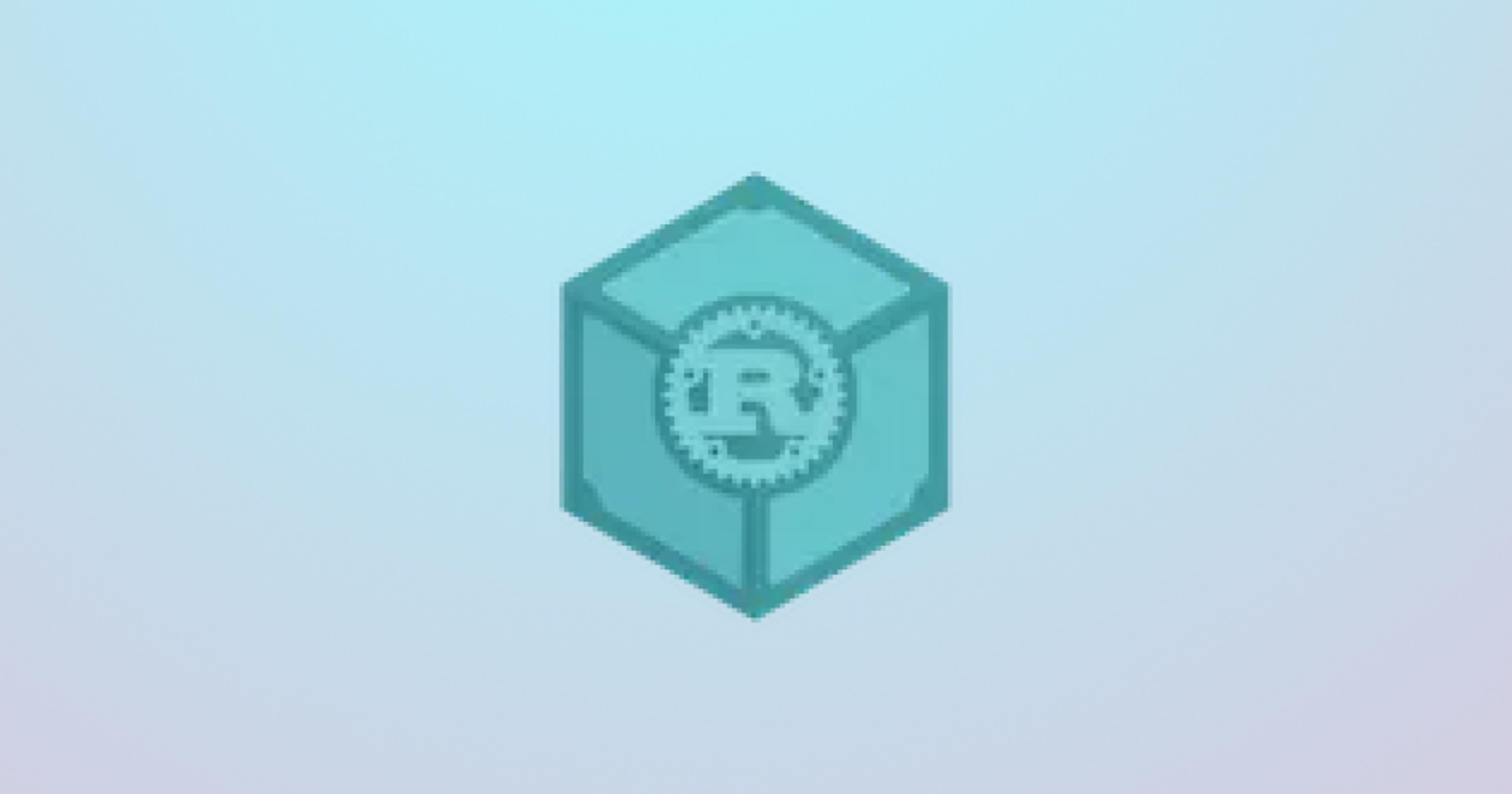
Introduction
The InterPlanetary File System (IPFS) is a decentralized system for sharing data across the internet. IPFS allows its users to send and receive data directly with each other, similar to BitTorrent. Participants act as both servers and clients on the IPFS network, which implements a number of improvements to previous peer-to-peer sharing technologies, such as data de-duplication and replication.
IPFS is positioned to become the storage layer of the decentralized web, and is already in production use by industry leaders. Protocol Labs maintains a reference implementation of IPFS written in Go.
Opportunity
The goal of this project is to offer a full-featured, secure implementation of IPFS in Rust. We use the reference test suite1 as our success metric. This effort involves comprehensive project planning, open-source community engagement, and expert Rust development skills.
Timeline
Late 2019: Opportunity identified Equilibrium Labs identified community requests for a Rust implementation of IPFS in late 2019 and initiated a thorough review of the existing IPFS codebase and protocol specifications. This analysis informed the project roadmap: we outlined the required work phases and development milestones, prioritizing the early release of core features.
Early 2020: Phase 1 We released several core features, fostered community engagement and began outreach to Protocol Labs to explore grant opportunities.
Mid 2020: Phase 2 We completed additional networking security and performance improvements throughout 2020, enabled related technologies such as offchain::ipfs2, implemented UnixFS, and expanded conformance test coverage.
Late 2020 through 2021 Development continues on the remaining IPFS features, as well as exploring new opportunities, such as utilizing Tokio3 for improved networking capabilities.
Impact Review
Open-Source Project Guidance: We are fostering an active, mature GitHub community to support the Rust IPFS codebase, bringing together development resources from projects that had languished for years prior.
Vision: Equilibrium Labs recognizes IPFS as a key technology supporting the distributed web. We believe developing IPFS in Rust offers more robust security and higher performance, as well as bringing IPFS to more platforms, such as embedded systems, IoT and low-power devices. Rust's safety mechanisms reduce the occurrence of common errors and vulnerabilities, which allow developers to spend more time on features and performance.
Best Practices: Equilibrium Labs sets projects up for long-term success by applying industry best practices. Our comprehensive documentation efforts include not only technical reference materials for seasoned developers but also quick-start guides and tutorials for those who are new to the project. The codebase includes a comprehensive set of software tests to ensure code contributions meet the technical specifications.
About Rust
Rust is a modern open-source programming language providing memory safety and performance comparable to C++, making it a popular choice for developing robust, secure applications. Rust powers projects such as ZCash Zebra4, Holochain5, Lighthouse6, and many others in the blockchain space and beyond.
About Equilibrium Labs
Equilibrium Labs is an R&D company focused on the hardest engineering problems around security, privacy, and scaling of blockchain-based cloud infrastructure.
Footnotes:
Continue reading

May 28, 2025
State of Verifiable Inference & Future Directions
Verifiable inference enables proving the correct model and weights were used, and that inputs/outputs were not tampered with. This post covers different approaches to achieve verifiable inference, teams working on this problem, and future directions.
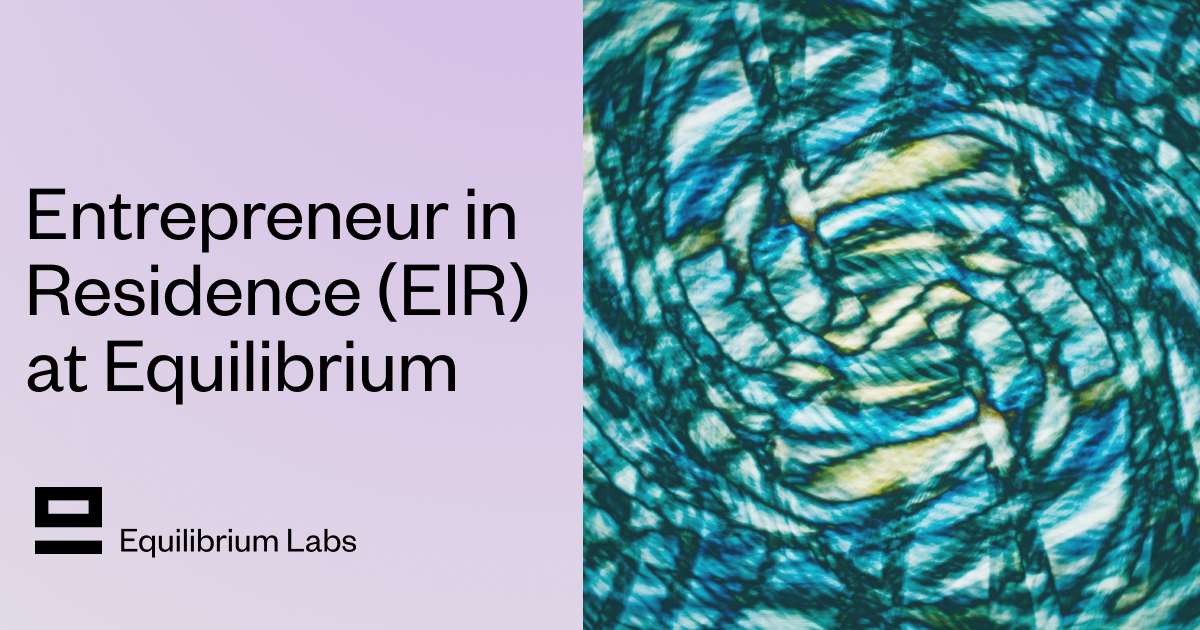
March 25, 2025
Introducing Our Entrepreneur in Residence (EIR) Program
After 6+ years of building core blockchain infrastructure across most ecosystems and incubating ventures like ZkCloud, we're looking for ambitious pre-founders with whom to collaborate closely.

March 10, 2025
From Speculation to Utility: Next Steps For Onchain Lending Markets
Despite its promises, onchain lending still mostly caters to crypto-natives and provides little utility besides speculation. This post explores a path to gradually move to more productive use cases, low-hanging fruit, and challenges we might face.
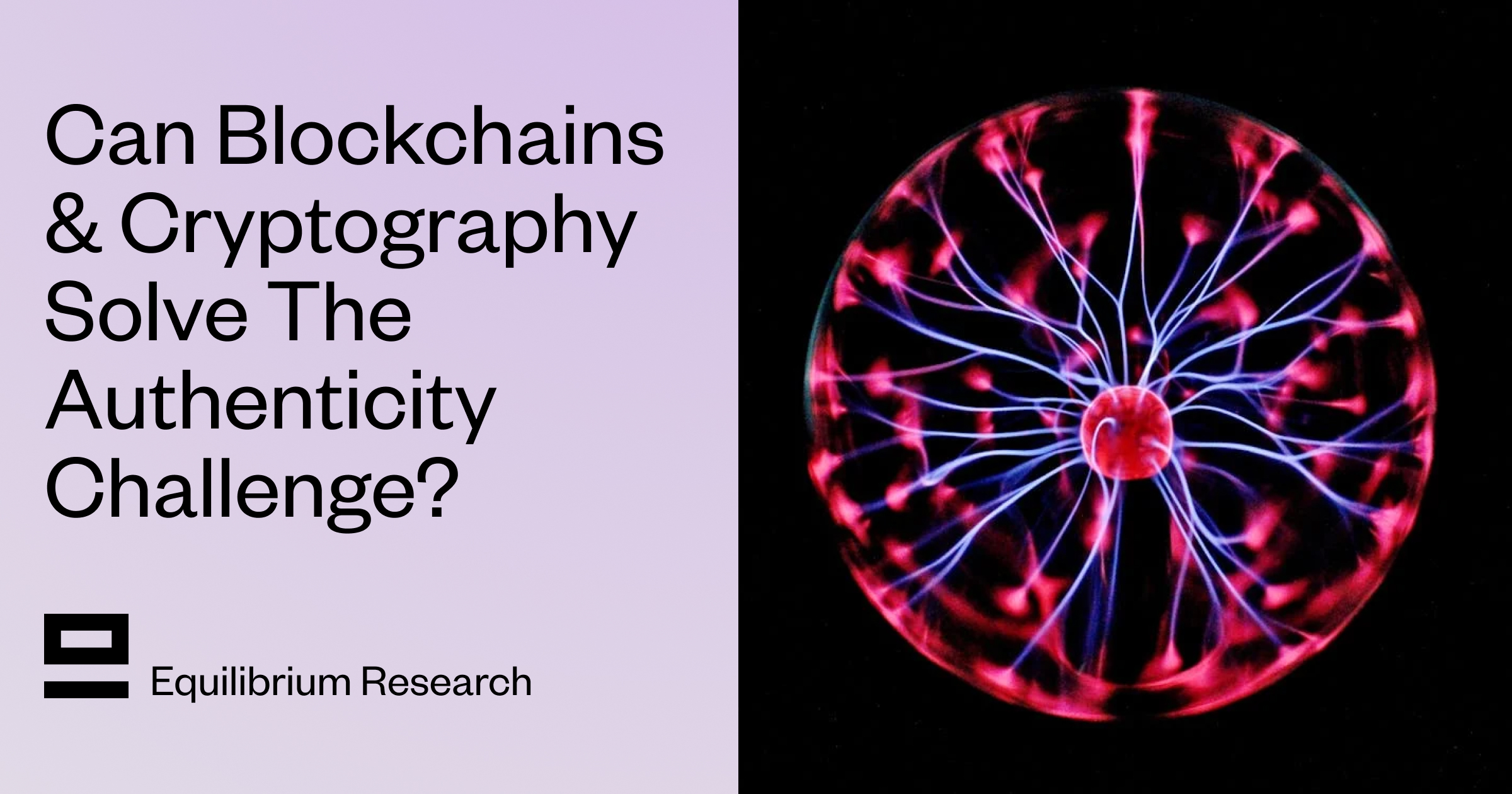
February 18, 2025
Can Blockchains And Cryptography Solve The Authenticity Challenge?
As gen-AI models improve, it's becoming increasingly difficult to differentiate between AI- and human-generated content. This piece dives into whether cryptography and blockchains can solve the authenticity challenge and help restore trust on the Internet
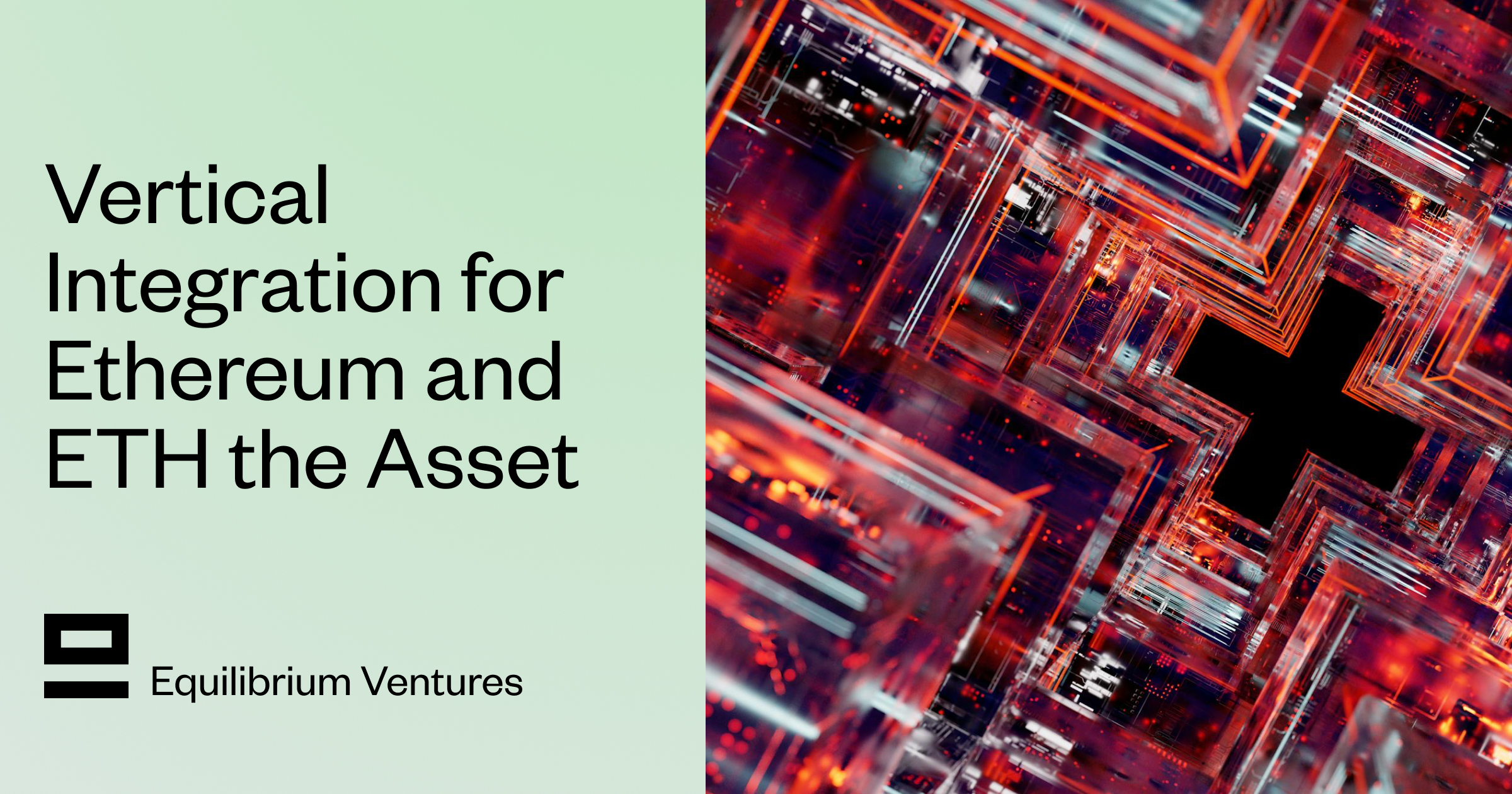
February 6, 2025
Vertical Integration for both Ethereum and ETH the Asset
In recent months, lackadaisical price action and usage growing on other L1/L2s has driven a discussion on what Ethereum’s role and the value of ETH, the asset is long-term.
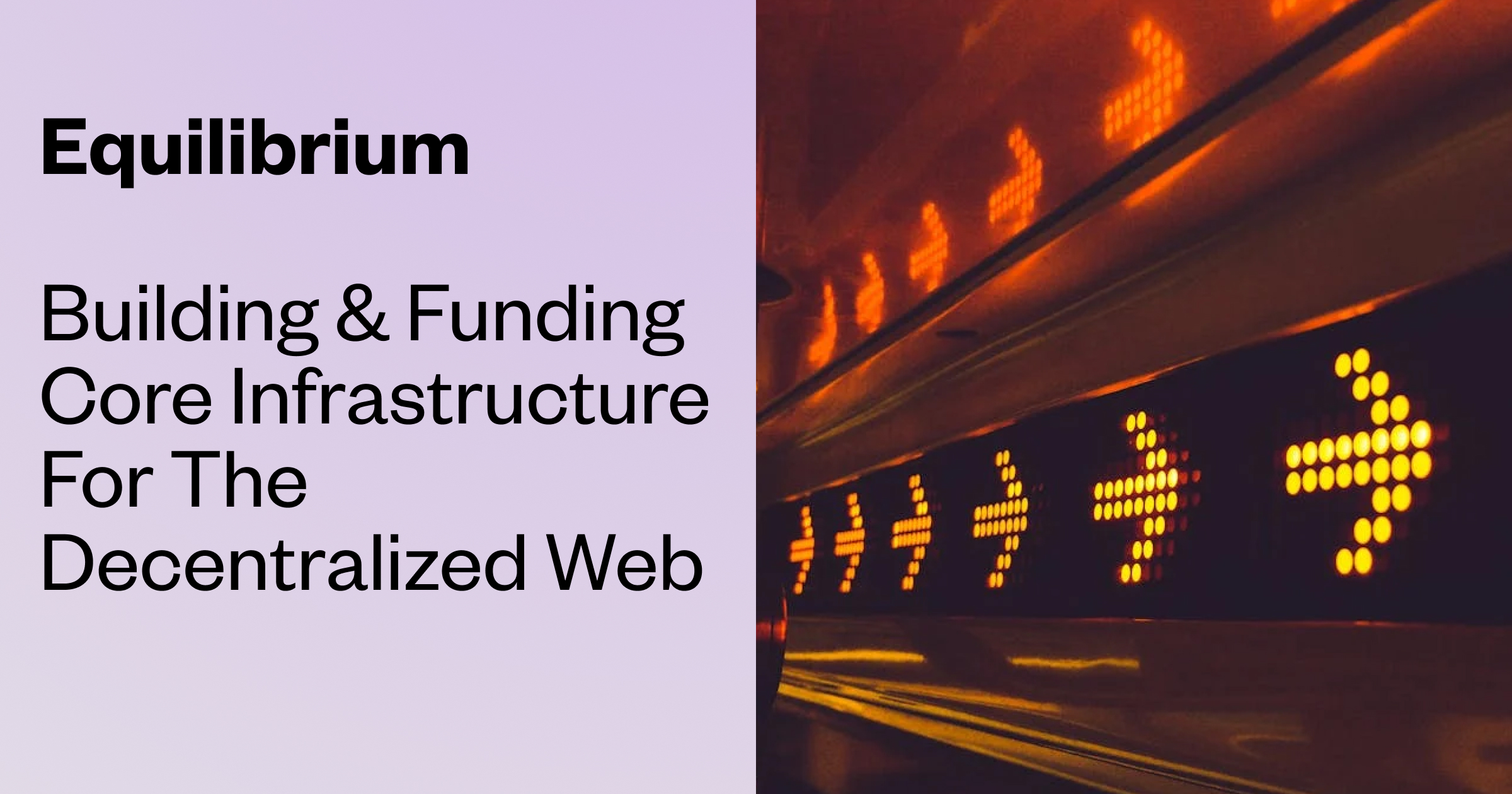
January 29, 2025
Equilibrium: Building and Funding Core Infrastructure For The Decentralized Web
Combining Labs (our R&D studio) and Ventures (our early-stage venture fund) under one unified brand, Equilibrium, enables us to provide more comprehensive support to early-stage builders and double down on our core mission of building the decentralized web

November 28, 2024
20 Predictions For 2025
For the first time, we are publishing our annual predictions for what will happen by the end of next year and where the industry is headed. Joint work between the two arms of Equilibrium - Labs and Ventures.
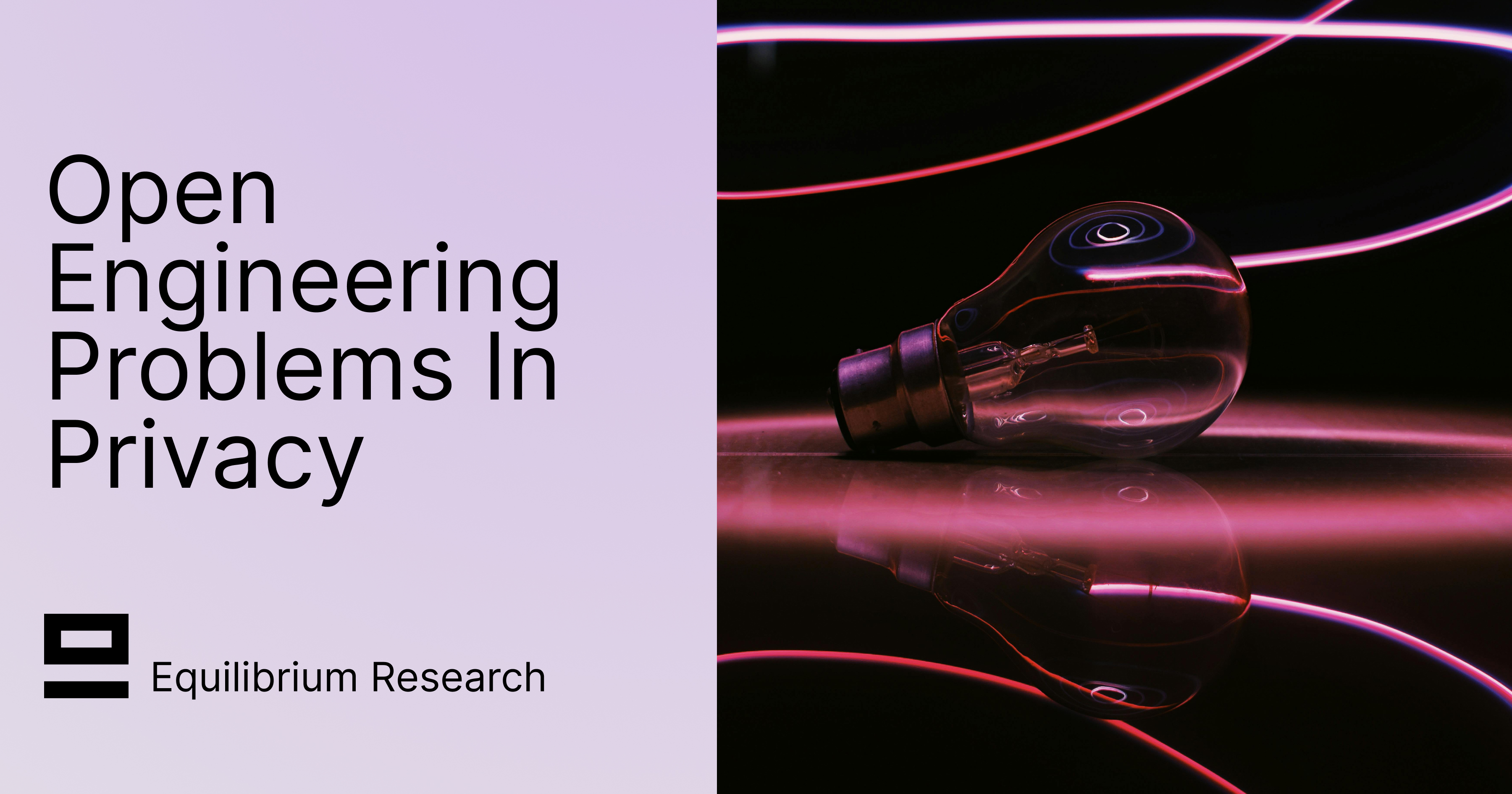
November 7, 2024
9 + 1 Open Problems In The Privacy Space
In the third (and final) part of our privacy series, we explore nine open engineering problems in the blockchain privacy space in addition to touching on the social/regulatory challenges.
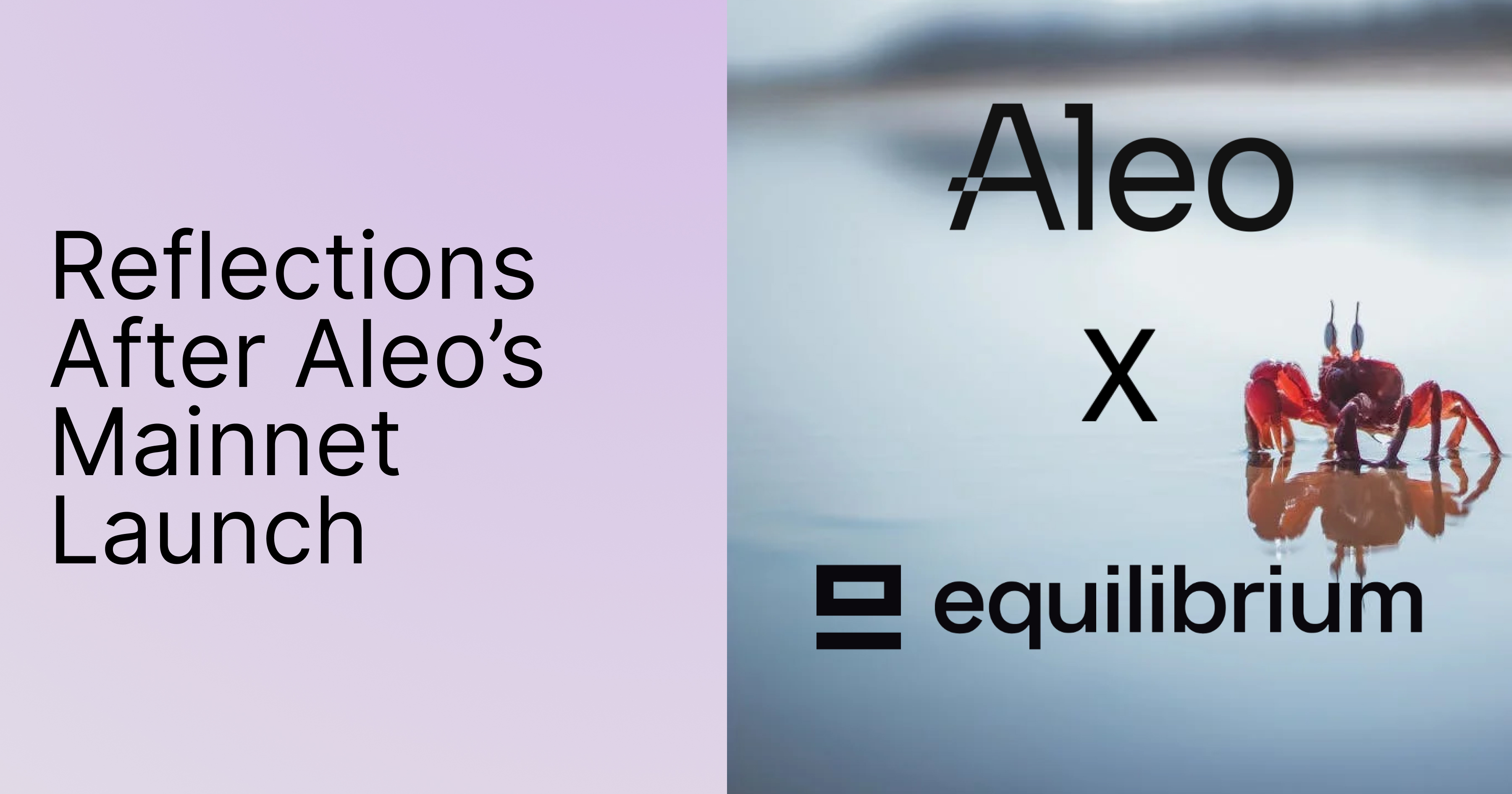
October 15, 2024
Aleo Mainnet Launch: Reflecting On The Journey So Far, Our Contributions And Path Ahead
Equilibrium started working with Aleo back in 2020 when ZKPs were still mostly a theoretical concept and programmable privacy in blockchains was in its infancy. Following Aleo's mainnet launch, we reflect on our journey and highlight key contributions.

August 12, 2024
Do All Roads Lead To MPC? Exploring The End-Game For Privacy Infrastructure
This post argues that the end-game for privacy infra falls back to the trust assumptions of MPC, if we want to avoid single points of failure. We explore the maturity of MPC & its trust assumptions, highlight alternative approaches, and compare tradeoffs.
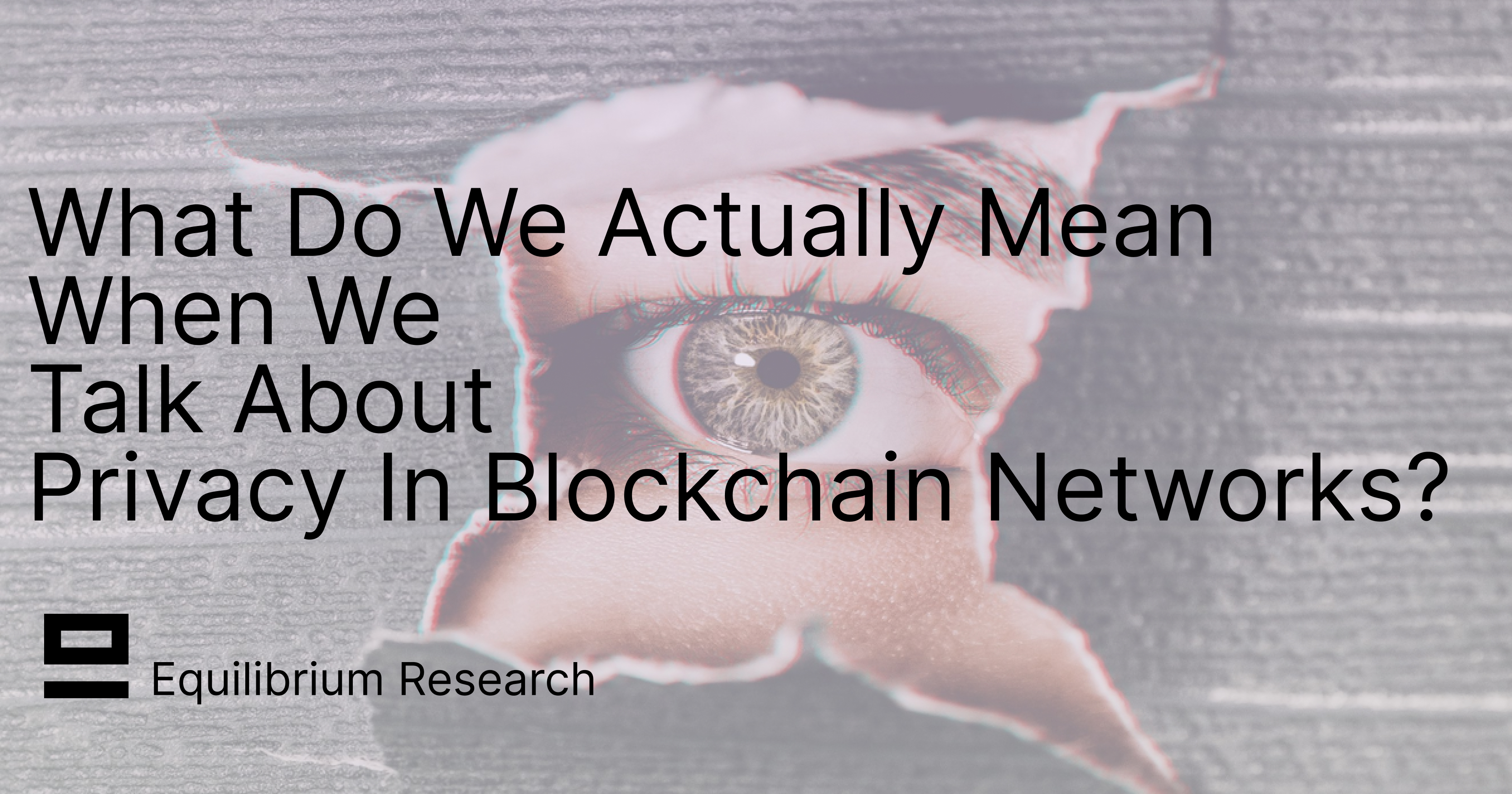
June 12, 2024
What Do We Actually Mean When We Talk About Privacy In Blockchain Networks (And Why Is It Hard To Achieve)?
An attempt to define what we mean by privacy, exploring how and why privacy in blockchain networks differs from web2, and why it's more difficult to achieve. We also provide a framework to evaluate different approaches for achieveing privacy in blockchain.

April 9, 2024
Will ZK Eat The Modular Stack?
Modularity enables faster experimentation along the tradeoff-frontier, wheras ZK provides stronger guarantees. While both of these are interesting to study on their own, this post explores the cross-over between the two.
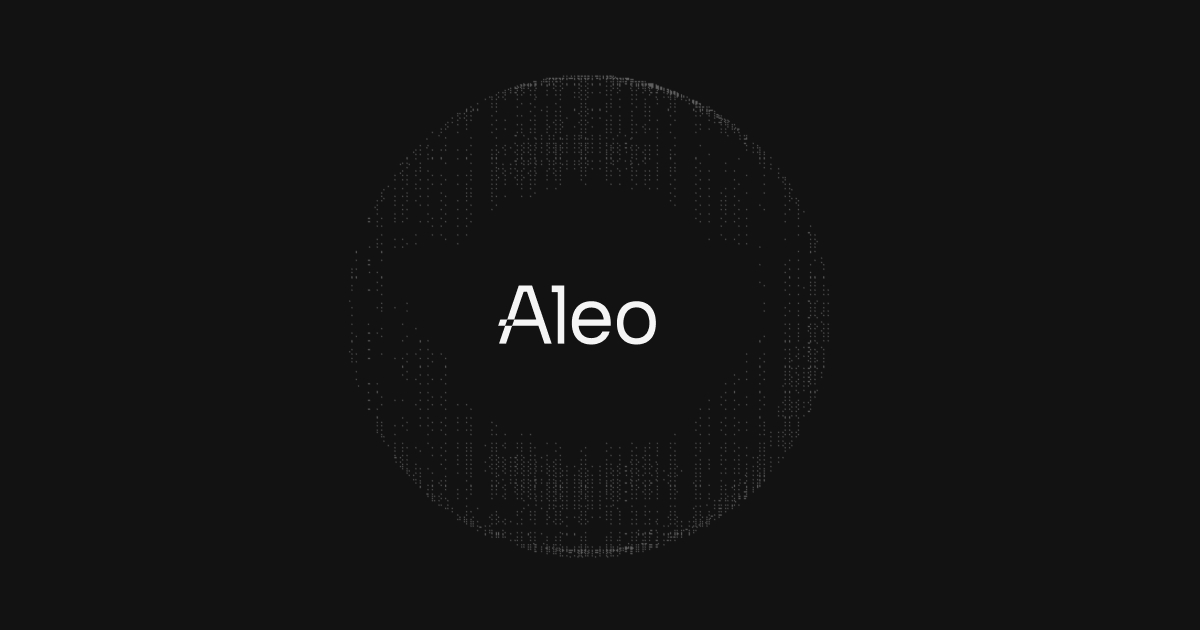
October 5, 2023
Overview of Privacy Blockchains & Deep Dive Of Aleo
Programmable privacy in blockchains is an emergent theme. This post covers what privacy in blockchains entail, why most blockchains today are still transparent and more. We also provide a deepdive into Aleo - one of the pioneers of programmable privacy!
March 12, 2023
2022 Year In Review
If you’re reading this, you already know that 2022 was a tumultuous year for the blockchain industry, and we see little value in rehashing it. But you probably also agree with us that despite many challenges, there’s been a tremendous amount of progress.

May 31, 2022
Testing the Zcash Network
In early March of 2021, a small team from Equilibrium Labs applied for a grant to build a network test suite for Zcash nodes we named Ziggurat.
June 13, 2021
Rebranding Equilibrium
A look back at how we put together the Equilibrium 2.0 brand over four months in 2021 and found ourselves in brutalist digital zen gardens.
January 20, 2021
2021 Year In Review
It's been quite a year in the blockchain sphere. It's also been quite a year for Equilibrium and I thought I'd recap everything that has happened in the company with a "Year In Review" post.